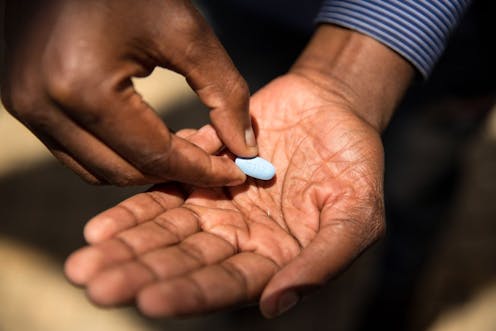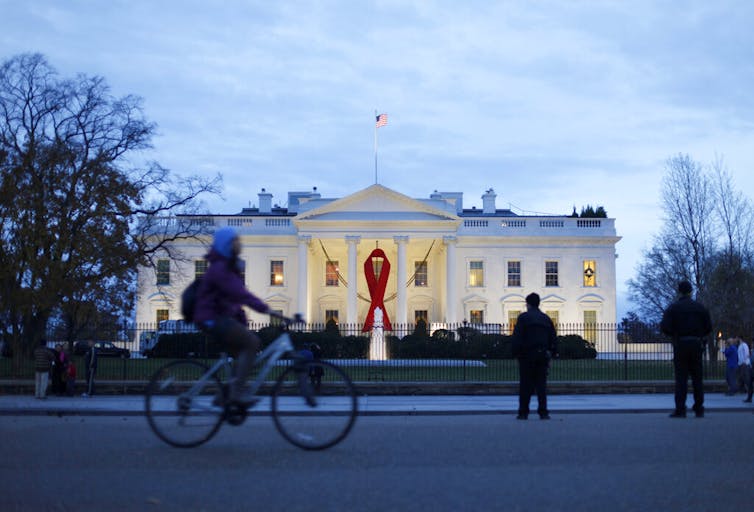Free preventive care under the ACA is under threat again – a ruling exempting PrEP from insurance co
Judge Reed O'Connor ruled in a case that coverage for HIV prevention medicine PrEP violated the religious freedom of the plaintiffs. It is unclear whether the order will extend nationwide.

Many Americans breathed a sigh of relief when the Supreme Court left the Affordable Care Act in place following the law’s third major legal challenge in June 2021. This decision left widely supported policies in place, like ensuring coverage regardless of preexisting conditions, coverage for dependents up to age 26 on their parents’ plan, and removal of annual and lifetime benefit limits.
But the hits keep coming. One of the most popular benefits offered by the ACA, free preventive care, is under legal threat again by Braidwood Management v. Becerra – originally Kelley v. Becerra. The Braidwood plaintiffs are a mix of individuals and business owners who object to purchasing insurance that covers preexposure prophylaxis – or PrEP – a medicine that is almost 100% effective in preventing HIV infection. One of the plaintiffs claimed that PrEP “facilitates and encourages homosexual behavior, intravenous drug use, and sexual activity outside of marriage between one man and one woman” and that his religious beliefs prevent him from providing insurance that covers PrEP.
On Sep. 7, 2022, Texas Judge Reed O’Connor issued a ruling that the requirement for insurance plans to cover PrEP violated the religious freedom of the plaintiffs. He also ruled that the ACA overstepped in delegating decisions about cost-sharing for preventive care to the U.S. Preventive Services Task Force. Who this ruling will ultimately affect and whether it will eventually get rid of the requirement to fully cover other preventive care, like free flu shots and cancer screening, has yet to be confirmed.
We are public health researchers at Boston University and Tulane University who study health insurance, prevention and sexual health. With this policy now in jeopardy, prevention and the push for health equity in the U.S. stand to take a big step backward.
The ACA and preventive care
Section 2713 of the ACA requires insurers to offer full coverage of preventive services that are endorsed by one of three federal groups: the U.S. Preventive Services Task Force (with an A or B rating), the Advisory Committee on Immunization Practices and the Health Resources and Services Administration. If they recommend the procedure or intervention as important preventive care, then you shouldn’t have to pay anything out of pocket. For example, the CARES Act used this provision to ensure COVID-19 vaccines would be free for many Americans.

PrEP received an A rating in June 2019, paving the way for both PrEP and related services like clinic visits and lab tests to be covered at no cost for millions of people.
Though Section 2713 of the ACA doesn’t work perfectly, sometimes leaving patients frustrated by unexpected bills, it has made a huge difference in reducing costs for services like well-child visits and mammograms, just to name a few.
The legal arguments
The latest case rested on legal technicalities that have nothing to do with PrEP, but rather whether the U.S. Preventive Services Task Force can wield the authority granted to them by the ACA, and whether the religious freedom of the plaintiffs was violated.
O’Connor agreed that allowing the U.S. Preventive Services Task Force this authority violated the appointments clause of the Constitution, which specifies that people using government powers must be “officers of the United States.” In this case, O'Connor ruled that U.S. Preventive Services Task Force members do qualify as officers, but their appointment is unconstitutional because they are not appointed by the President and confirmed by the Senate.
This paves the way for the repeal of Section 2713 and allowing insurers to decide what, if any, preventive care would remain free to patients in their plans. He also argued that because the ACA “force[s] Braidwood to [cover] services to which it holds sincere religious objections … offering coverage is itself a tacit endorsement of the behaviors that [the plaintiff] believes the services encourage.”
Losing access to preventive care
PrEP is a major component of the prevention pillar of the United States’ “Ending the HIV Epidemic” initiative and has successfully reduced HIV diagnosis rates in areas where it is highly used. If this ruling were to extend nationally, over 170,000 current PrEP users and over 1 million people who can benefit from this medicine could be affected.

Removing the cost barrier to PrEP made it more accessible with commercial insurance, the primary source of health coverage for over two-thirds of the population under age 65. Raising the cost barrier again would disproportionately harm younger patients, people of color and those with lower incomes. Black men who have sex with men could be particularly affected because of the structural barriers they face, despite having no more “risky” sexual behavior on average than other men who have sex with men.
What’s next?
For now, the religious freedom portion of the ruling is specific to PrEP and Braidwood Management’s purchase of plans that cover PrEP. It is unclear whether the order will apply only to these plaintiffs or nationwide.
The next filings, where both sides will begin to provide more information on how they believe the ruling should be applied, are due by Sept. 16, 2022. As of yet, there is no timeline for a concrete decision.
For the time being, access to PrEP, contraception, cancer screenings and all other forms of preventive care made free by the ACA continue to be available. Regardless of O’Connor’s final decision, this case seems likely to be appealed to the Supreme Court, where another showdown over the fate of a substantial part of the ACA will be decided.
Portions of this article originally appeared in previous articles published on Sep. 7, 2021 and Dec. 1, 2021.
Paul Shafer has received funding in the past three years from the Commonwealth Fund, Arnold Ventures, Robert Wood Johnson Foundation, Kate B. Reynolds Charitable Trust, Starbucks Coffee Company, and Renova Health.
Kristefer Stojanovski has received funding in the past from the Robert Wood Johnson Foundation, the National Institute of Minority Health & Health Disparities, the National Institute of Mental Health, and the Fulbright Program
Read These Next
The cost of casting animals as heroes and villains in conservation science
New research shows how these storytelling choices can distort science – and how to move beyond them.
Detroit was once home to 18 Black-led hospitals – here’s how to understand their rise and fall
In the early 20th century, Detroit’s Black medical professionals created a network of health care…
From moral authority to risk management: How university presidents stopped speaking their minds
Nearly 150 universities and colleges have adopted institutional neutrality pledges since 2023.





